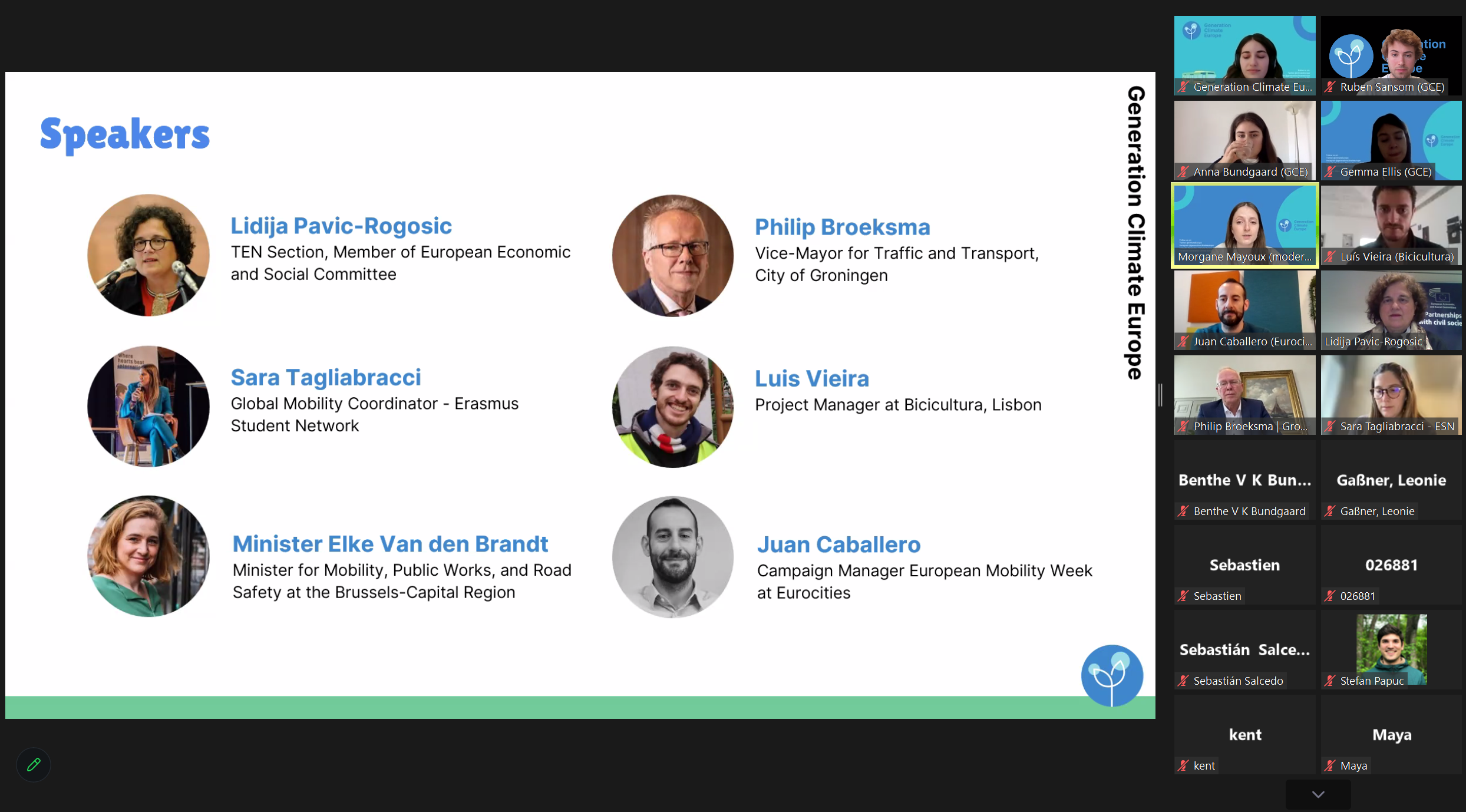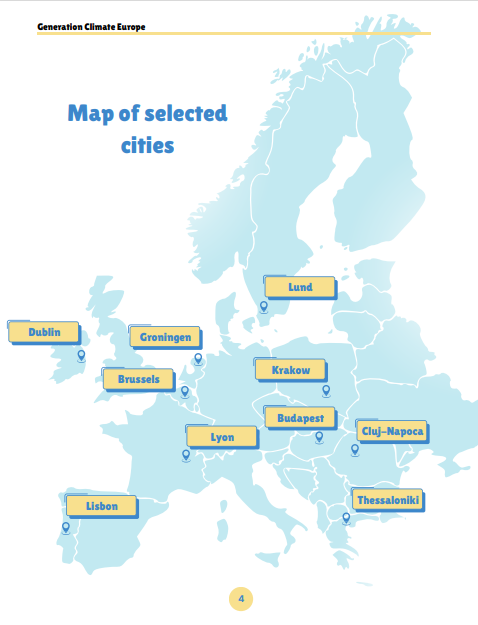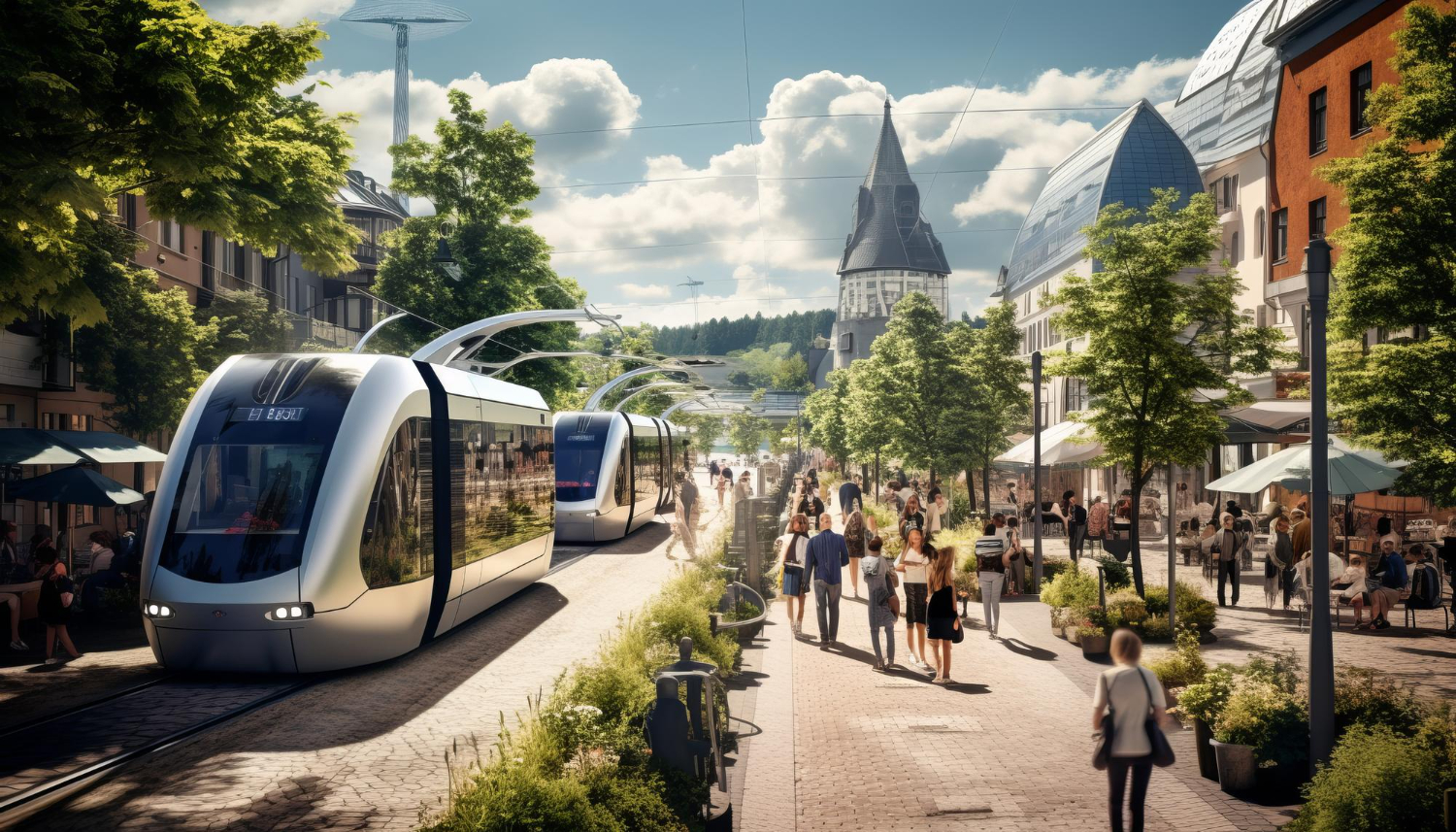On 25 March, GCE launched its latest report: “Youth on the Move: Making Green Urban Mobility Accessible to All” and discussed the implications of the findings during an online event organised in partnership with the European Economic and Social Committee. This comes after a year of surveying and interviewing hundreds of young people in 10 key EU cities aiming to be climate neutral by 2030. The evidence is clear: many young Europeans need cheaper, safer and more reliable clean transport.
The panel discussion brought together Elke Van den Brandt, Minister for Mobility, Public Works and Road Safety at Brussels-government, Philip Broeksma, Groningen’s Vice-Mayor for Transport, Juan Caballero representing Eurocities as Campaign Manager for the European Mobility Week and Luis Vieira, Project Manager at Bicicultura, a Lisbon grassroots initiative promoting soft mobility.

Affordable mobility is crucial for social integration and ensuring equal opportunities, two key requirements for a just climate transition. This fact was brought to the centre stage during Lidija Pavić-Rogošić’s keynote speech for the EESC, who has recently recognised mobility as an individual right and public good. Sara Tagliabracci from the Erasmus Student Network (ESN) then reminded the audience that a lack of affordable green options means young people are bound to travel in a less sustainable way.
Brussel’s Minister for Mobility, Elke Van den Brandt shared that getting young people to adopt green mobility practices sets them up for lifelong habits of public transport use. The regional government is working on bridging the gender gap in the adoption of cycling through classes and by building more cycling lanes, as the evidence shows is an effective way of increasing the number of cyclists.
Building on the importance of having the right infrastructure, Philip Broeksma reminded the audience that mindful communication is key for citizens to accept changes in urban spaces. As Vice-Mayor for Transport in Groningen, he noticed that businesses that were once sceptical of car-free zones have since realised the benefits of a more livable space for pedestrians. The urban/suburban divide in access to clean mobility, evidenced by GCE’s report can be mitigated by requiring scooter companies to serve suburban towns.
“Resistance to change can be an indication that things are moving in the right direction” – Philip Broeksma
On putting the needs of citizens first, Luis Vieira from Bicicultura added that any transport infrastructure should focus on its users first, instead of being built for the convenience of the service providers. Integrated ticketing systems are part of the solution to ensure seamless travel experiences, and he called for funding for local initiatives that promote green travel.
Social equity considerations were at the heart of the dialogue. Eurocities representative Juan Caballero noted that cheap transport is important, but that it should be provided proportionally to the users’ means. Any technological advancements serving the public transport system should also advance human and societal needs first.
“Public transport is the backbone of mobility in any city” – Juan Caballero
“Any city, regardless of size or location, can do well on mobility for young people” was the conclusion of the event, as GCE’s research shows that all EU regions can perform well on youth access to sustainable mobility.
This event was organised by GCE’s Clean Mobility Working Group. The organisers and authors of the report include Julia Berndt, Ermioni Chatzimichail, Gemma Ellis, Antoine Hattemer, Morgane Mayoux, Ruben Sansom, Jana Sopf and Anna Vase Bundgaard.


